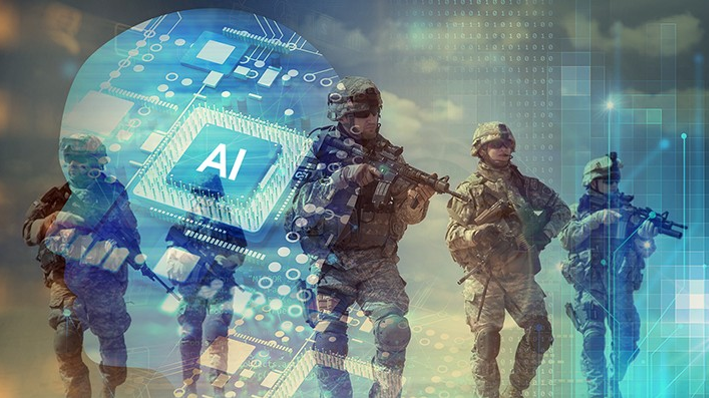The integration of 5G and AI in defense is revolutionizing military strategies and operations worldwide. As these technologies advance, they offer profound enhancements in communication, decision-making, and operational efficiency. For aerospace enthusiasts, understanding these developments is crucial as they signify a major shift in defense capabilities.

What is 5G Technology?
5G technology refers to the fifth generation of mobile network technology, characterized by high-speed data transmission, low latency, and increased connectivity. This advancement supports real-time data exchange, a critical feature for military applications.
The Role of AI in Defense
Artificial Intelligence (AI) in defense encompasses a wide range of applications, from autonomous vehicles and drones to predictive analytics and cybersecurity. AI’s ability to process vast amounts of data quickly makes it an invaluable tool for military operations.
Enhancing Communication with 5G
The deployment of 5G networks improves communication on the battlefield by enabling faster and more reliable data transmission. This ensures that military personnel can communicate seamlessly, even in remote locations.
AI-Driven Decision Making
AI systems assist in decision-making by analyzing data and providing actionable insights. This capability is crucial for strategic planning and real-time responses during combat situations.
Applications of 5G and AI in Defense
5G and AI are being used in various defense applications, including:
- Autonomous Vehicles: AI-powered vehicles can operate without human intervention, performing tasks such as surveillance and logistics.
- Drones: Equipped with AI, drones can execute complex missions, from reconnaissance to targeted strikes.
- Cybersecurity: AI enhances cybersecurity by detecting and responding to threats in real-time.
Improving Battlefield Awareness
The combination of 5G and AI improves battlefield awareness by providing real-time data to military personnel. This allows for better situational awareness and more informed decision-making.
AI in Predictive Maintenance
AI technologies are used in predictive maintenance, helping to anticipate equipment failures before they occur. This ensures that military assets are always operationally ready.
Challenges and Considerations
While the benefits of 5G and AI in defense are significant, there are challenges to consider. These include ensuring data security, managing the ethical implications of autonomous systems, and addressing potential vulnerabilities in AI algorithms.
Data Security Concerns
With increased connectivity comes the risk of data breaches. Ensuring the security of sensitive military data is paramount in the implementation of these technologies.
Ethical Implications
The use of AI in autonomous weapons raises ethical questions about human oversight and accountability. These issues must be addressed to ensure responsible use of technology in defense.
The Future of 5G and AI in Defense
As 5G and AI continue to evolve, their role in defense will expand. Future developments may include more sophisticated autonomous systems, enhanced cybersecurity measures, and improved communication networks.
Advancements in Autonomous Systems
The future of defense will likely see the development of more advanced autonomous systems, capable of performing a wider range of tasks with minimal human intervention.
Enhanced Cybersecurity Measures
With the increased use of AI, cybersecurity measures must also advance to protect against evolving threats. This includes the development of AI-driven security protocols.
Conclusion
The integration of 5G and AI in defense is transforming how military operations are conducted. These technologies offer significant advantages in communication, decision-making, and operational efficiency, paving the way for a new era of military strategy.

FAQs
What are the benefits of 5G in defense?
5G offers faster communication, increased connectivity, and improved data transmission on the battlefield.
How does AI enhance military operations?
AI enhances military operations by providing decision-making support, enabling autonomous systems, and improving cybersecurity.
What challenges do 5G and AI face in defense?
Challenges include data security, ethical considerations, and managing AI system vulnerabilities.
For more information on the transformative role of AI in defense, you can visit this external link.

